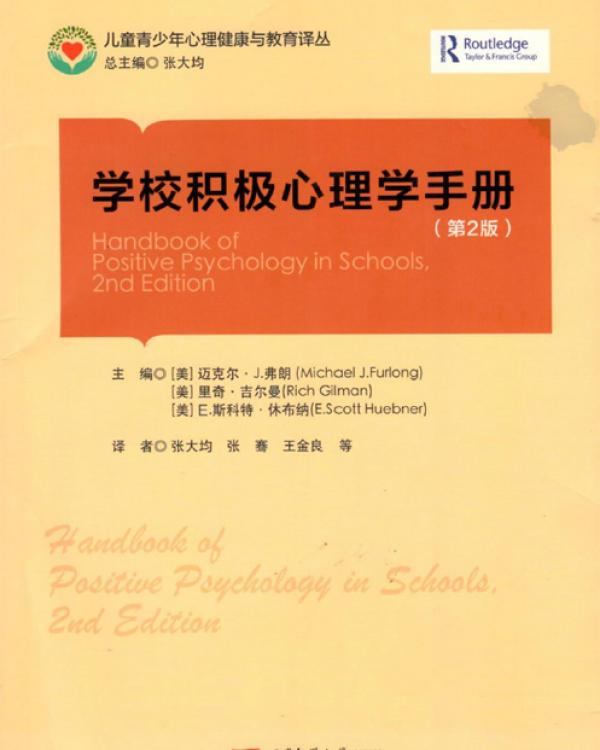
A Chinese translation of the second edition of the Handbook of Positive Psychology in Schools, co-edited by Michael Furlong of UC Santa Barbara’s Gevirtz School, was published this year (original released by Routledge, 2014). The collection is co-edited with Rich Gilman of the University of Cincinnati Medical School and E. Scott Huebner of the University of South Carolina.
Dr. Jin Liang Wang and Dr. Qian Zhang assisted Professor Da-Jun Zhang in the translation effort. “The purpose of translating the Handbook is related to Professor Da-Jun Zhang's psychological Suzhi Theory that is described in the handbook and to support the dissemination of positive psychology in Chinese schools,” explains Dr. Qian Zhang. “The application of positive psychology has changed many educational practices in Chinese schools.”
Furlong adds, “It is very exciting to see that the contributions made by more than thirty scholars to the Handbook will now contribute to the be available to support the social emotional wellness of Chinese students. I am deeply appreciative of Drs. Zhang, Wang, and Zhang’s efforts to make this volume available to Chinese scholars and educators.”
Understanding the factors that encourage young people to become active agents in their own learning is critical. Positive psychology is one lens that can be used to investigate the factors that facilitate a student’s sense of agency and active school engagement. In the second edition of this groundbreaking handbook, the editors draw together the latest work on the field, identifying major issues and providing a wealth of descriptive knowledge from renowned contributors. Major topics include: the ways that positive emotions, traits, and institutions promote school achievement and healthy social and emotional development; how specific positive-psychological constructs relate to students and schools and support the delivery of school based services; and the application of positive psychology to educational policy making. With thirteen new chapters, this edition provides a long-needed centerpiece around which the field can continue to grow, incorporating a new focus on international applications of the field.
Michael Furlong has recently served as Associate Dean for Research of and a Professor in the Gevirtz Graduate School of Education. He is a Fellow of the American Psychological Association (Division 16, School Psychology) and the American Educational Research Association. He carries out his research with colleagues in the International Center for School-Based Youth Development.